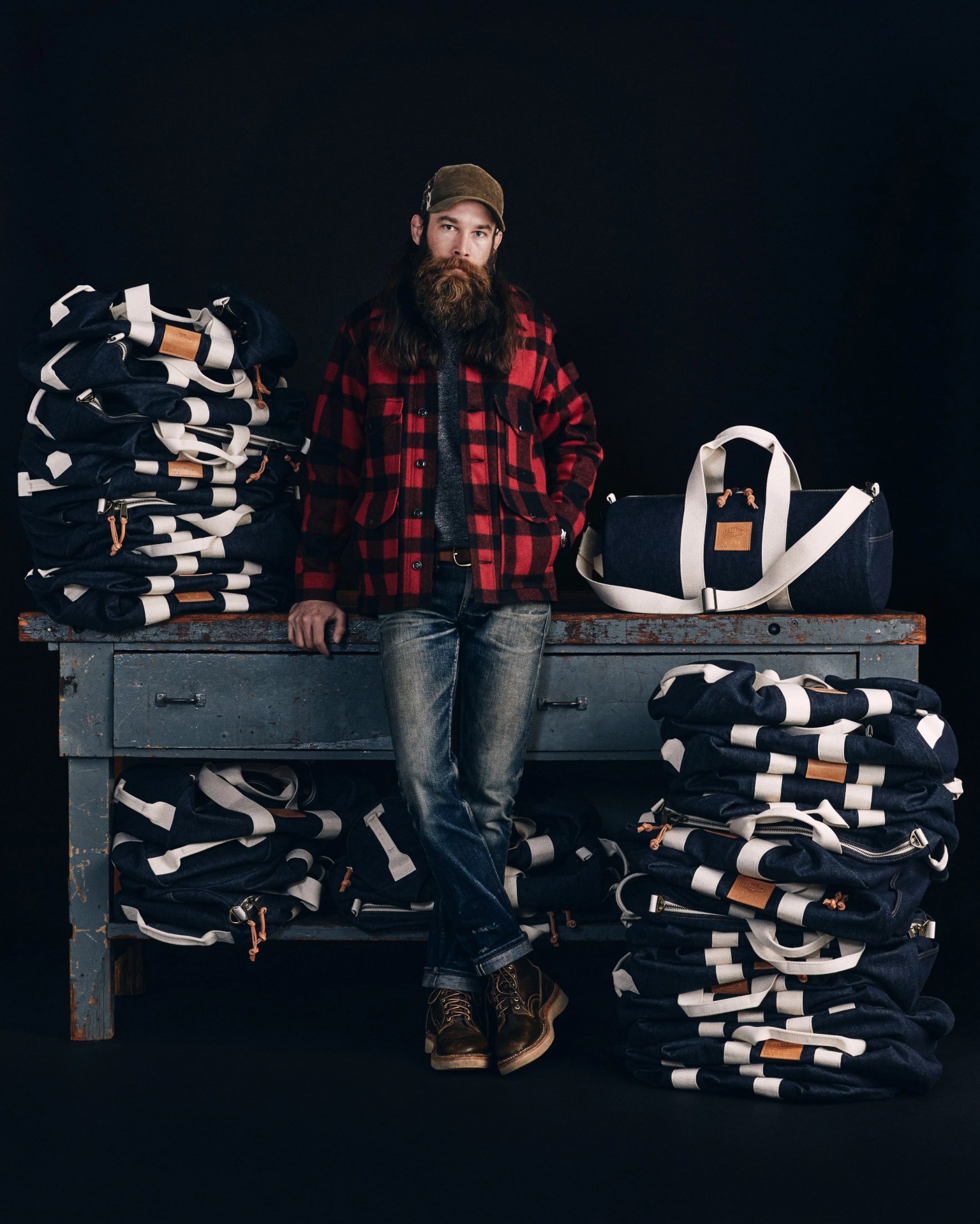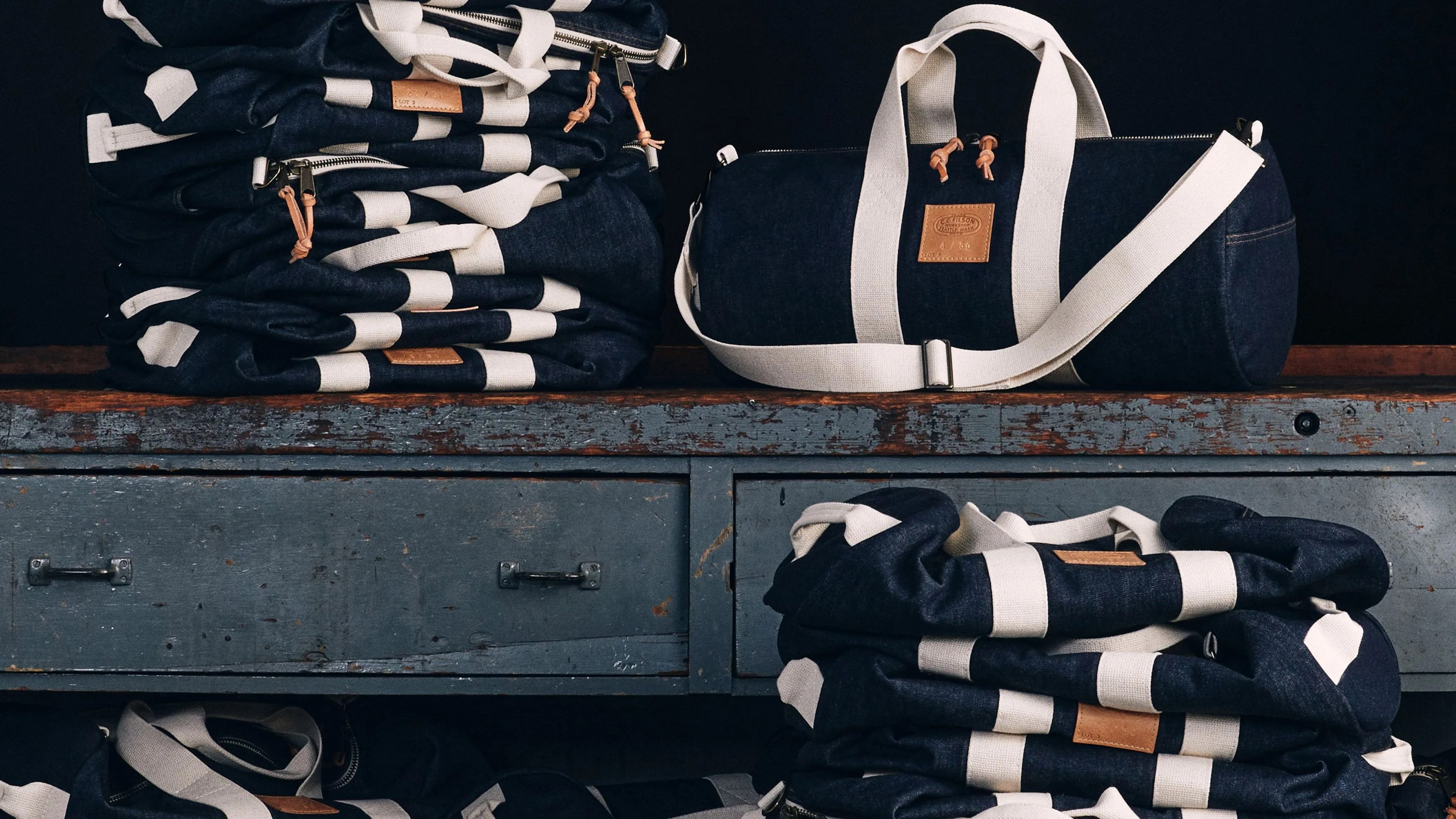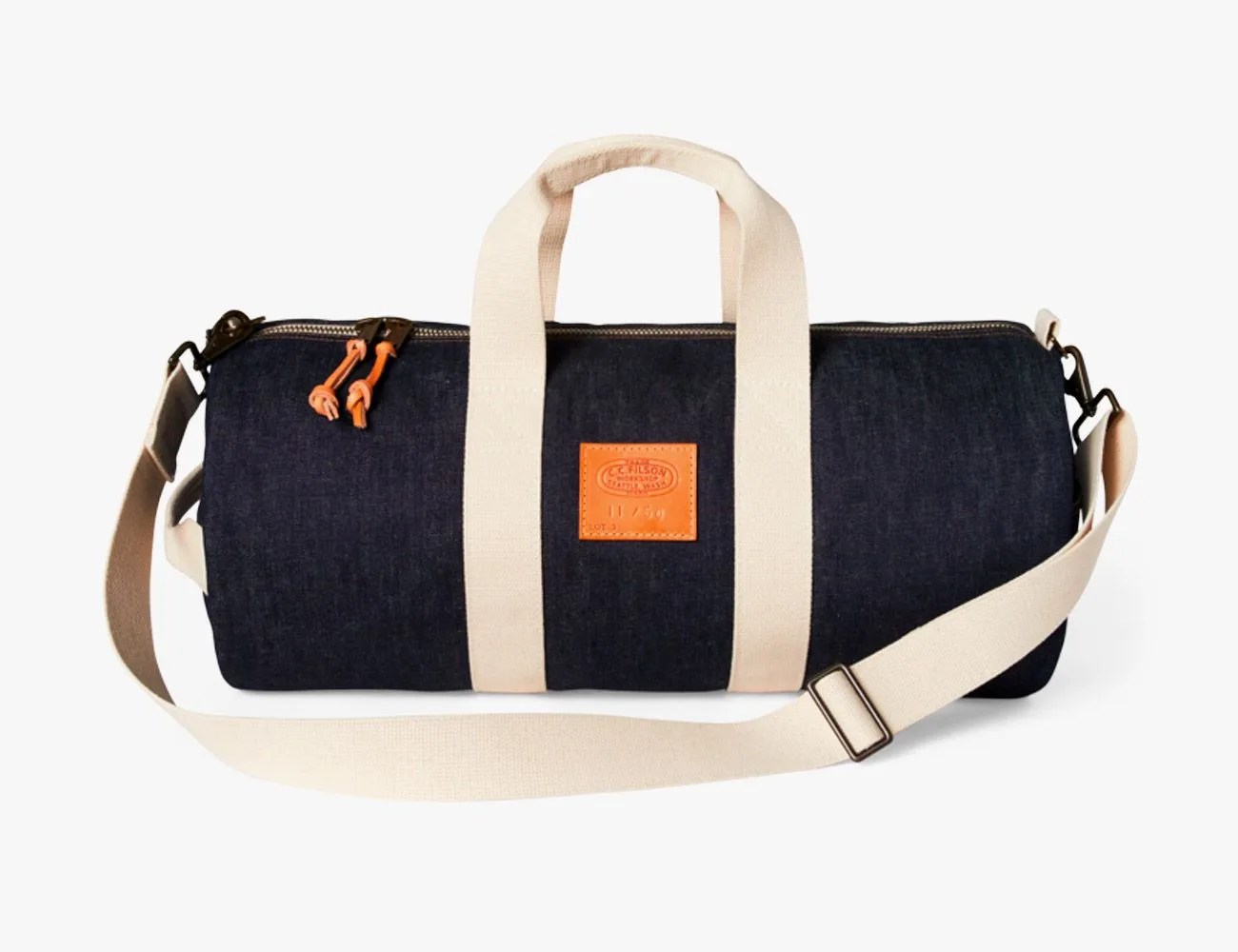Located inside Filson‘s flagship Seattle store, the Filson Workshop — which is a part of its Restoration Department — is home to a few of the brand’s most talented hands. There, they refurbish old Filson products and make new ones from decommissioned, short-run and otherwise waste materials, the shopkeepers explain — materials like leftover leather, recovered canvas and deadstock denim.
For Lot 2, craftsmen — including Filson Restoration Department Specialist Jon Duce — made 50 tote bags using dark deadstock denim from Cone Denim’s historic White Oak Mill, which closed but has since reopened courtesy of non-profit WOLF (short for The White Oak Legacy Foundation), an organization dedicated to preserving the history of denim innovation.
With Lot 3, which is out now, Duce works with denim once more, but he fashioned the found material into 50 duffle bags, not totes.

“Like other products that come out of the Filson Workshop,” he says, “these bags are hand-cut and hand-stitched in Seattle utilizing decommissioned deadstock materials. The use of Cone Denim’s historic White Oak mill allows us to breathe new life into a unique, limited product.”
Each one features a numbered leather patch on the front that counts from 0 to 50, signaling which in the lot you’re looking at. Leather zipper pulls offer bright orange contrast, while heavy duty cotton webbing wraps around the center of the duffle to create handles. The webbing also serves as a cross-body strap, but it detaches at both ends. On one side there’s a stow pocket, while the other has a grab handle.
The Denim Barrel Duffle, as it’s called, is an entirely new shape for Filson, which Duce created himself. Along with restoring vintage products in the Workshop, he is responsible for sewing his samples, creating pattern drafts, sourcing the raw materials, and providing assistance to the Product Development and Technical Design teams, making him uniquely aware of, and involved in, every step of the process.



